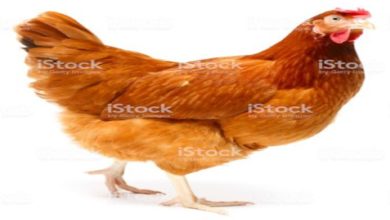The most common question asked by poultry farmers is “why have my laying hens stopped laying?”
There are many reasons which can make hens to reduce/stop laying hens and many causes that can lead to few to no eggs. Here I have summarized the most common causes of reduced egg production.
1. Disease
Disease challenges can occur under the best of conditions. Frequently one of the first signs of disease is a drop in egg production. Other signs of disease include dull and listless appearance, watery eyes and nostrils, coughing, molting, lameness and mortality in the flock. Remember some death is normal over the period of a year in any flock. However, if you suspect a disease, contact a skilled veterinarian for help in examining your flock and get an accurately diagnosis and treatment. Your best protection against disease is to buy healthy stock and keep them isolated from other flock. If you wish to expand your flock, buy chicks from a known hatchery or hatch some of your own eggs. Adult hens can look healthy but maybe carriers of diseases
2.Poor nutrition
Laying hens need a completely balanced ration to sustain maximum egg yield over time. Poor nutrition can at times cause hens to stop laying. The most common problem is not being able to provide a constant source of fresh water. This is especially a problem during the chilly months. Provide adequate water supply so the hens always have fresh water. Insufficient levels of energy, protein or calcium can also cause a yield reduction. This is why it is so crucial to supply your laying hens with a regular supply of nutritionally balanced layer food balanced at 16% – 18% protein. Feeding whole grains, scratch feeds and table scraps will make the hens’ diet to become poorly balanced. Many times these imbalances can create other problems like prolapse (egg blow-outs). Prolapse is caused when the hen is too fat and/or egg is too large and the hen reproductive tract is expelled with the egg. Prolapse usually cause permanent damage to the hen and is fatal in many case.
3. Reduced day length
Hens require 14 hours of day length to maintain egg production. As soon as day length falls below 12 hours, the yield will decrease and often stop. This happens naturally from October through February.
To prohibit this, provide artificial light to sustain a constant day length of at least 14 hours per day. The lights should be added in the morning hours so the birds can go to roost as the sun sets. This keeps birds from being stranded in the dark when lights are turned out during dark hours. Some small bird owners find it easier to leave the lights on constantly.
4. Advancing age
Production hens can lay expeditiously for two laying cycles. Nonetheless, after two or three years, productivity of most hens reduce. This varies greatly from hen to hen. Good layers will lay about 50 to 60 weeks per laying cycle. Between these cycles they will be disturbed by a rest period called a molt. Poorer layers and older hens will molt at most times and lay less. Removal of non-layers is recommended if economical egg production is your goal.
5. Stress
Any stress such as moving, handling, changes in environmental conditions can contribute to or be the main cause for egg yield reduction. Common stresses include:
Coldness: Chickens do not handle damp, drafty conditions well. Prevent excessive exposure to wet, drafty conditions during colder months.
Handling: Once the laying flock is in place, reduce any unnecessary moving or handling.
Parasites: If external or internal parasites are present, get proper diagnosis and treatment.
Fear: Reduce the movement of children, dogs, livestock and vehicles around your flock as well as loud noises to prevent scaring the hens.
Predators: They can cause stress to the hens and create a decrease in egg production.
Also check out our article on poultry diseases





Your piece truly did switch the light on for me personally as far as this particular subject matter goes. Well done. Maude Donalt Huoh